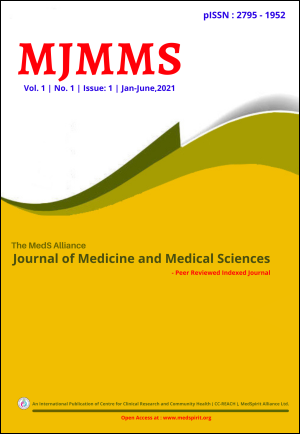Physical Health Problems and Patterns of Self-Care Associated with the Use of Digital Devices among University Students
DOI:
https://doi.org/10.3126/mjmms.v1i1.42918Keywords:
Digital devices, physical health, self-careAbstract
INTRODUCTION: Utilization of digital devices create some problems for users, such as, mental disorder, visual problems, headache, weight gain and unnecessary time consumption. Therefore, this study aims to identify the information about the practices on the use of digital devices, its impact on physical health and pattern of self-care among the university students involved in different professions.
MATERIALS AND METHODS: MPhil scholars involved in different professions (n= 315) of Nepal Open University (NOU) had participated in this cross-sectional online survey during January 2019 to August 2019. Multivariable analysis was employed to obtain rate ratios and chi-square test was used for the association of the use of digital devices with physical health problems.
RESULTS: Socio-demographic factors like age was significantly associated with neck pain (p=0.02) and stiffness in hands/arms (p=0.04), while profession was associated with weight gain and difficulty in sleep (p=0.04). Moreover, the use of tablets or taking tea or coffee during the use of digital devices was associated with headache among university students (p=0.05) with small effect sizes. Additionally, we found that headache (p< 0.001), and weight gain (p= 0.01) were significantly associated with the daily use of computer and TV respectively.
CONCLUSIONS: Physical health problems among the subjects who used computers and TV were relatively high as compared to the subjects who used laptops. Self-care measures taken by participants for physical health problems involved the use of medicine and meditation.
Downloads
Downloads
Published
How to Cite
Issue
Section
License
Copyright (c) 2021 Dirgha Raj Joshi, Umesh Neupane, Roshan Chitrakar

This work is licensed under a Creative Commons Attribution-NonCommercial 4.0 International License.




